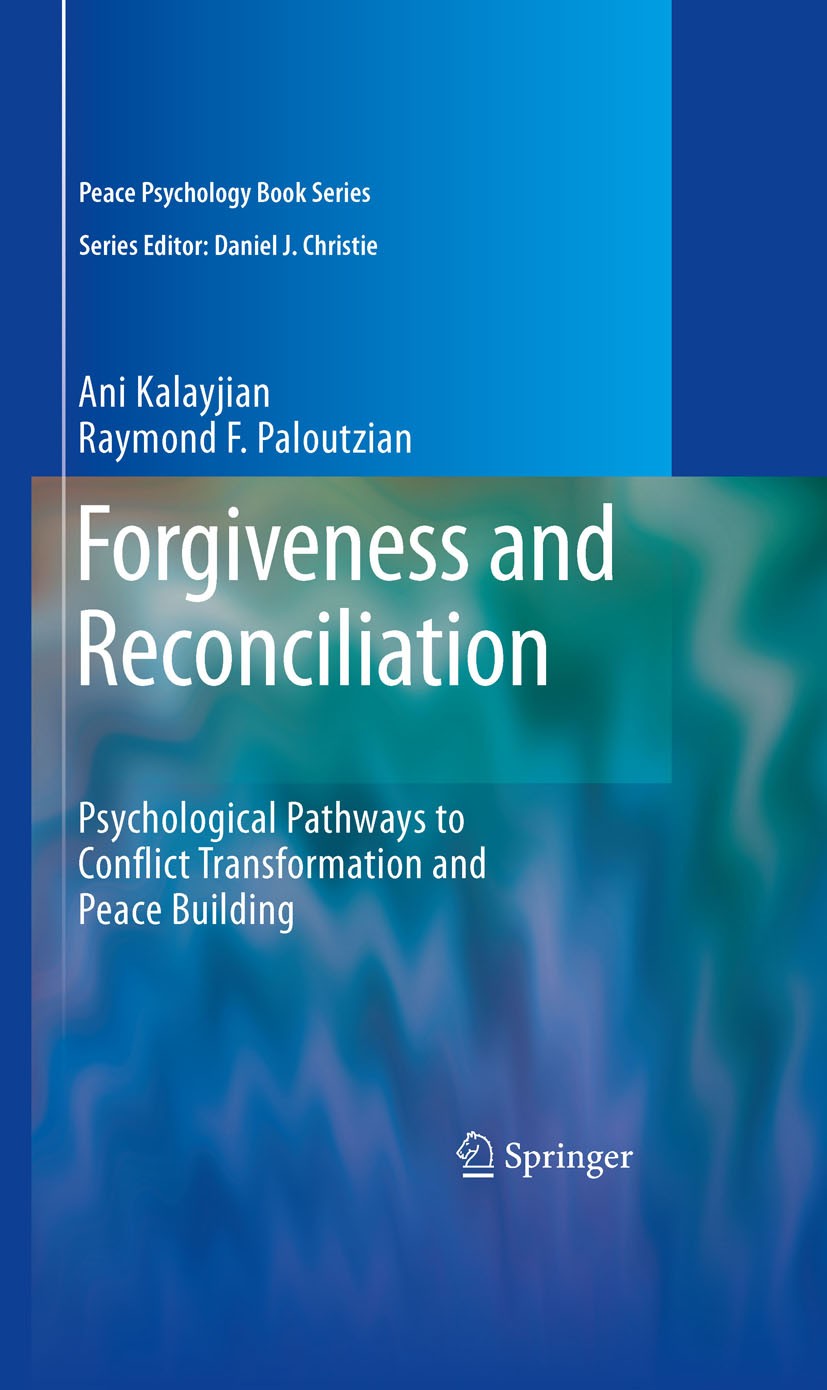| 书目名称 | Forgiveness and Reconciliation |
| 副标题 | Psychological Pathwa |
| 编辑 | Ani Kalayjian,Raymond F. Paloutzian |
| 视频video | http://file.papertrans.cn/346/345603/345603.mp4 |
| 概述 | Identifies the central issues related with forgiveness and reconciliation.Inclusive, multidisciplinary, multi-ethnic, multi-generational and international perspectives and pathways.Includes supplement |
| 丛书名称 | Peace Psychology Book Series |
| 图书封面 |  |
| 描述 | We all long for peace within ourselves, families, communities, countries, and throughout the world. We wonder what we can do about the multitude of con?icts currently wreaking havoc across the globe and the continuous reports of violence in communities as well as within families. Most of the time, we contemplate solutions beyond our reach, and overlook a powerful tool that is at our disposal: forgiveness. As a genocide survivor, I know something about it. As the genocide unfolded in Rwanda in 1994, I was devastated by what I believed to be the inevitable deaths of my loved ones. The news that my parents and my seven siblings had indeed been killed was simply unbearable. Anger and bitterness became my daily companions. Likewise, I continued to wonder how the Hutus and Tutsis in Rwanda could possibly reconcile after one of the most horrendous genocides of the 20th century. It was not until I came to understand the notion of forgiveness that I was able to see the light at the end of the tunnel. Common wisdom suggests that forgiveness comes after a perpetrator makes a genuine apology. This wisdom informs us that in the aftermath of a wrongdoing, the offender must acknowledge the wrong |
| 出版日期 | Book 2010 |
| 关键词 | destructive entitlement; distributive injustice; intelligence; psychology; relational ethics |
| 版次 | 1 |
| doi | https://doi.org/10.1007/978-1-4419-0181-1 |
| isbn_softcover | 978-1-4419-6219-5 |
| isbn_ebook | 978-1-4419-0181-1Series ISSN 2197-5779 Series E-ISSN 2197-5787 |
| issn_series | 2197-5779 |
| copyright | Springer Science+Business Media, LLC 2010 |
 |Archiver|手机版|小黑屋|
派博传思国际
( 京公网安备110108008328)
GMT+8, 2026-1-27 01:02
|Archiver|手机版|小黑屋|
派博传思国际
( 京公网安备110108008328)
GMT+8, 2026-1-27 01:02


